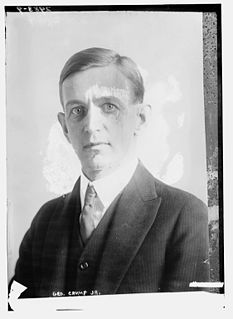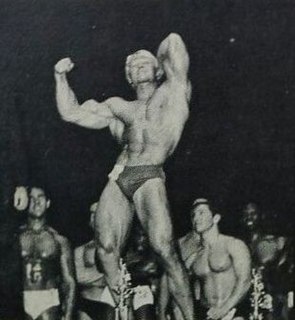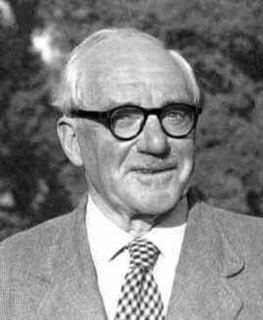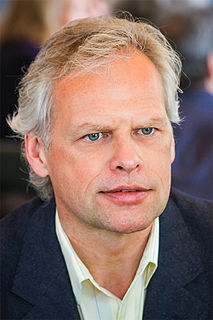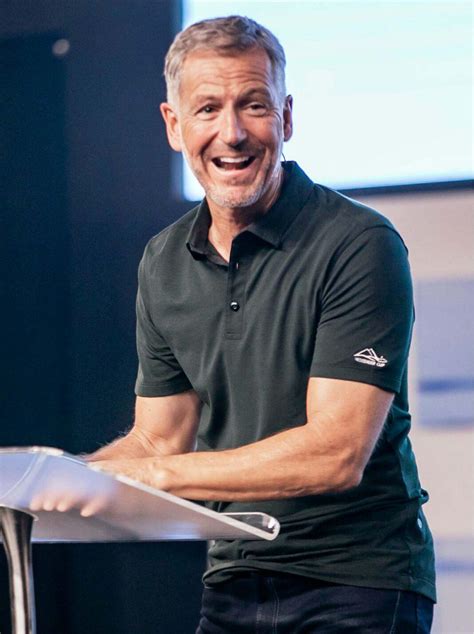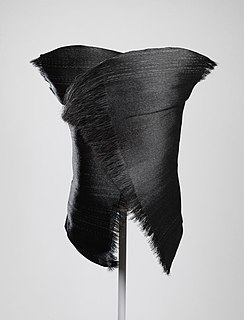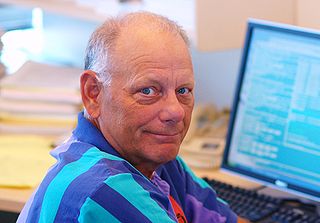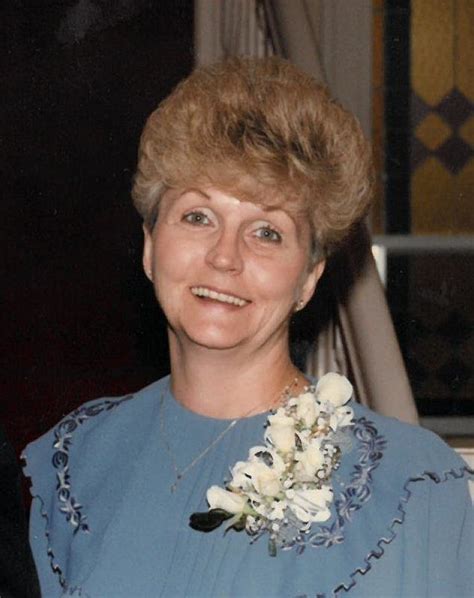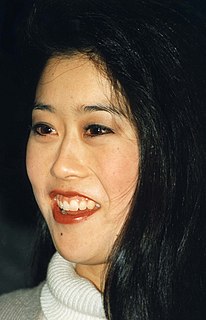Top 827 Application Quotes & Sayings - Page 14
Explore popular Application quotes.
Last updated on December 22, 2024.
He is not a true man of science who does not bring some sympathy to his studies, and expect to learn something by behavior as well as by application. It is childish to rest in the discovery of mere coincidences, or of partial and extraneous laws. The study of geometry is a petty and idle exercise of the mind, if it is applied to no larger system than the starry one. Mathematics should be mixed not only with physics but with ethics; that is mixed mathematics. The fact which interests us most is the life of the naturalist. The purest science is still biographical.
Now at this very moment I knew that the United States was in the war, up to the neck and in to the death. So we had won after all! ... How long the war would last or in what fashion it would end no man could tell, nor did I at this moment care ... We should not be wiped out. Our history would not come to an end ... Hitler's fate was sealed. Mussolini's fate was sealed. As for the Japanese, they would be ground to a powder. All the rest was merely the proper application of overwhelming force.
Of what use is the universe? What is the practical application of a million galaxies? Yet just because it has no use, it has a use - which may sound like a paradox, but is not. What, for instance, is the use of playing music? If you play to make money, to outdo some other artist, to be a person of culture, or to improve your mind, you are not really playing - for your mind is not on the music. You don't swing. When you come to think of it, playing or listening to music is a pure luxury, an addiction, a waste of valuable time and money for nothing more than making elaborate patterns of sound.
The study of the Life of Jesus has had a curious history. It set out in quest of the historical Jesus, believing that when it had found Him it could bring Him straight into our time as a Teacher and Saviour. ... But He does not stay; He passes by our time and returns to His own... He returned to His own time, not owing to the application of any historical ingenuity, but by the same inevitable necessity by which the liberated pendulum returns to its original position.
It is not our free will but 'it is the Lord who sets the captive free' (Ps. 145:7). It is not our own virtue but 'it is the Lord who lifts up those who were laid low' (Ps. 145:8). It is not application to reading but 'it is the Lord who gives light to the blind' (Ps. 145:8). It is not our cautiousness but 'it is the Lord who protects the stranger' (Ps. 145:9). It is not our endurance but 'it is the Lord who raises or gives support to the fallen' (Ps. 144:14).
If a mathematician wishes to disparage the work of one of his colleagues, say, A, the most effective method he finds for doing this is to ask where the results can be applied. The hard pressed man, with his back against the wall, finally unearths the researches of another mathematician B as the locus of the application of his own results. If next B is plagued with a similar question, he will refer to another mathematician C. After a few steps of this kind we find ourselves referred back to the researches of A, and in this way the chain closes.
The ultrasound that has application not only in space for a long mission or for a mission to the Moon or Mars, but also in remote areas on the Earth. Not even just - I'm not even talking about expeditions like to the Antarctic, but just a remote area, a small town somewhere. The local doctor is not going to know everything, and so if that person can link in with a diagnostic ultrasound to the hospital in New York City through the internet, then they can do a very quick diagnosis of something that's wrong with someone that's in this remote area.
Idealism, though just in its premises, and often daring and honest in their application, is stultified by the exclusive intellectualism of its own methods: by its fatal trust in the squirrel-work of the industrious brain instead of the piercing vision of the desirous heart. It interests man, but does not involve him in its processes: does not catch him up to the new and more real life which it describes. Hence the thing that matters, the living thing, has somehow escaped it; and its observations bear the same relation to reality as the art of the anatomist does to the mystery of birth.
But life cannot maintain itself alone. The Creator of life has entrusted us with the responsibility of preserving, developing, and perfecting it. In order that we may accomplish this, He has provided us with a collection of marvelous faculties. And He has put us in the midst of a variety of natural resources. By the application of our faculties to these natural resources we convert them into products, and use them. The process is necessary in order that life may run its appointed course.
Tape with LTFS has several advantages over the other external storage devices it would typically be compared to. First, tape has been designed from Day 1 to be an offline device and to sit on a shelf. An LTFS-formatted LTO-6 tape can store 2.5 TB of uncompressed data and almost 6 TB with compression. That means many data centers could fit their entire data set into a small FedEx box. With LTFS the sending and receiving data centers no longer need to be running the same application to access the data on the tape.
A person who is app-dependent is always searching for the best app; and as soon as its routine has been executed, the person searches for the next app. A person who is app-enabled also uses apps frequently. But he or she is never limited by the current array of apps; apps will free the person to do what he or she wants to do, or needs to do, irrespective of the next application of the app. An app-enabled person can also put devices away, without feeling bereft.
Affirmations are wonderful because it is much better to speak positively than to speak negatively. But the universe is not responding to your words; it responds to your vibration, and your vibration is being indicated to you by the way you feel. If you don’t believe what you are saying, your vibration hasn’t shifted, so nothing changes for you. The key to affirmations is to work yourself into a place where you really feel it. We have never talked about this before anywhere, but a very good application of an affirmation would be to affirm your way up the emotional scale. Start with an affirmation of where you are emotionally, then keep reaching for a better feeling thought.
Domestic and supranational regulatory capture leads to two things: on the one hand, to an inequality spiral where the rich get richer because they can influence rulemaking and rule application in their favor; on the other hand, it also leads to instability. This is so because the relatively few organizations capable of influencing supranational rulemaking through the lobbying of major governments have diverse interests. This will, in some cases, lead to compromises. But it will also lead to spheres of influence.
So, if I'm no cheerleader of sports, why write a chapter about it? Sports do have some positive impact on society. They solve problems, such as how to get inner-city kids to spend $175 on shoes. They serve as a backdrop for some of our most memorable commercials. And they remain the one and only relevant application of math. Not only that, but we have sports to thank for most of the last century's advances in manliness. The system starts in school, where gym class separates the men from the boys. Then those men are taught to be winners, or at least, losers that hate themselves.
Economic progress means the discovery and application of better ways of doing things to satisfy our wants. The piping of water to a household that previously dragged it from a well, the growing of two blades of grass where one grew before, the development of a power loom that enables one man to weave ten times as much as he could before, the use of steam power and electric power instead of horse or human power - all these things clearly represent economic progress.
When a teacher of the future comes to point out to the youth of America how the highest rewards of intellect and devotion can be gained, he may say to them, not by subtlety and intrigue; not by wire pulling and demagoguery; not by the arts of popularity; not by skill and shiftiness in following expediency; but by being firm in devotion to the principles of manhood and the application of morals and the courage of righteousness in the public life of our country; by being a man without guile and without fear, without selfishness, and with devotion to duty, devotion to his country.
Set realistic goals short and long term.
2. Plan an orderly and thorough routine to train the entire body.
3. Make a commitment to stick to your routine for four to six weeks to realize the changes and benefits, develop perseverance and create a habit.
4. Establish enthusiasm for your training, the driving force to perform successfully.
5. Ease into an appropriate training program with a wholesome, thoughtful nutritional plan: proper foods, amounts and order of consumption.
6. Be confident from the beginning that the application of these sound principles will produce the desired results.
The life and soul of science is its practical application, and just as the great advances in mathematics have been made through the desire of discovering the solution of problems which were of a highly practical kind in mathematical science, so in physical science many of the greatest advances that have been made from the beginning of the world to the present time have been made in the earnest desire to turn the knowledge of the properties of matter to some purpose useful to mankind.
We come finally, however, to the relation of the ideal theory to real world, or "real" probability. If he is consistent a man of the mathematical school washes his hands of applications. To someone who wants them he would say that the ideal system runs parallel to the usual theory: "If this is what you want, try it: it is not my business to justify application of the system; that can only be done by philosophizing; I am a mathematician". In practice he is apt to say: "try this; if it works that will justify it".
When you are free of your self in your heart, your labouring within your self is therapeutic to your self. It is a constant blend into your self of what your own Being is. The movement of love, enjoying being at work in the self. The movement of love, enjoying making a change in your self. The enjoyment of application.
We were doing something called telemedicine, where we were using the ultrasound. One interesting application of this ultrasound is the possibility that you could possibly use it to measure critical bone areas during a long space mission and track if you're losing bone in these areas. On Earth, when they check you for bone loss, you get in this big machine. It's the size of a room and it's got a platform with an x-ray that scans your whole body and in critical areas and it takes a while and it just wouldn't be practical to have a machine like that in space.
Kantian ethical theory distinguishes three levels: First, that of a fundamental principle (the categorical imperative, formulated in three main ways in Kant's Groundwork); second, a set of duties, not deduced from but derived from this principle, by way of its interpretation or specification, its application to the general conditions of human life - which Kant does in the Doctrine of virtue, the second main part of the Metaphysics of Morals; and then finally an act of judgment, through which these duties are applied to particular cases.
Making promises to myself, in my personal writing practice, has been important to me all my life. In practical application it is so much easier for me to make promises to others, and keep them, than it is to make promises to myself. "Why is that?" and the answer I gave myself is that in making promises to others I create a model of accountability and reinforcement. I duplicate that in my writing and have grown increasingly better at making and keeping promises to myself.
During my span of life science has become a matter of public concern and the l'art pour l'art standpoint of my youth is now obsolete. Science has become an integral and most important part of our civilization, and scientific work means contributing to its development. Science in our technical age has social, economic, and political functions, and however remote one's own work is from technical application it is a link in the chain of actions and decisions which determine the fate of the human race. I realized this aspect of science in its full impact only after Hiroshima.
Sometimes the parallels that are brought in can make the play seem less relevant; you can deny a play's application to the universal by making it too specific. Sometimes having a modern context does make things easier to grasp; sometimes, you go, "Why have they got swords?" "Why didn't Juliet just text Romeo? Why did she bother posting a letter? Why was the Milan post service so bad?" It throws up irrelevant questions that don't help.
Auto repair, piloting, skiing, perhaps even management: these are skills that yield to application, hard work, and native talent. But forecasting an uncertain future and deciding the best course of action in the face of that future are much less likely to do so. And much of what we've seen so far suggests that a large group of diverse individuals will come up with better and more robust forecasts and make more intelligent decisions than even the most skilled "decision maker."
I am not fully informed of the practices at Harvard, but there is one from which we shall certainly vary, although it has been copied, I believe, by nearly every college and academy in the United States. That is, the holding the students all to one prescribed course of reading, and disallowing exclusive application to those branches only which are to qualify them for the particular vocations to which they are destined. We shall, on the contrary, allow them uncontrolled choice in the lectures they shall choose to attend, and require elementary qualification only, and sufficient age.
Often God will send us what we need in a package we don't want. Why? To let us know He's God and we cannot second-guess Him. We cannot search for answers merely with our heads; we must seek Him and His provision with our hearts. Scripture cannot be interpreted from our limited human mental understanding. There must be a breath of the Spirit of God. He alone gives wise counsel and correct application.
As citizen-activists the world over merge, they can become an irresistible force to create peace and protect the planet. From here will come a new movement to abolish nuclear weapons and all weapons of mass destruction. From here will come the demand for sustainable communities, for new systems of energy, transportation and commerce. From here comes the future rushing in on us. How does one acquire the capacity for active citizenship? The opportunities exist every day...Active citizenship begins with an envisioning of the desired outcome and a conscious application of spiritual principles.
If nature has been frugal in her gifts and endowments, there is the more need of art to supply her defects. If she has been generous and liberal, know that she still expects industry and application on our part, and revenges herself in proportion to our negligent ingratitude. The richest genius, like the most fertile soil, when uncultivated, shoots up into the rankest weeds; and instead of vines and olives for the pleasure and use of man, produces, to its slothful owner, the most abundant crop of poisons.
For successful education there must always be a certain freshness in the knowledge dealt with. It must be either new in itself or invested with some novelty of application to the new world of new times. Knowledge does not keep any better than fish. You may be dealing with knowledge of the old species, with some old truth; but somehow it must come to the students, as it were, just drawn out of the sea and with the freshness of its immediate importance.
Making clothing is not just about the application of style and technique. At some stage, you want to experiment with new materials, or experiment in making materials. When you have a material to yourself, you get to make something totally new based on how that material acts. The access afforded by this tannery pushes you beyond your comfort or knowledge zone of hue and texture, forcing you - the designer - to think about how that flat plane will act when it enters the third dimension.
The confidence in the unlimited power of science is only too often based on a false belief that the scientific method consists in the application of a ready-made technique, or in imitating the form rather than the substance of scientific procedure, as if one needed only to follow some cooking recipes to solve all social problems. It sometimes almost seems as if the techniques of science were more easily learnt than the thinking that shows us what the problems are and how to approach them.
My first operating system project was to build a real-time system called RSX-11M that ran on Digital's PDP-11 16-bit series of minicomputers. ... a multitasking operating system that would run in 32 KB of memory with a hierarchical file system, application swapping, real-time scheduling, and a set of development utilities. The operating system and utilities were to run on the entire line of PDP-11 platforms, from the very small systems up through the PDP-11/70 which had memory-mapping hardware and supported up to 4 MB of memory.
The individual cannot think and communicate his thought, the governor and legislator cannot act effectively or frame his laws without words, and the solidity and validity of these words is in the care of the damned and despised litterati...when their very medium, the very essence of their work, the application of word to thing goes rotten, i.e. becomes slushy and inexact, or excessive or bloated, the whole machinery of social and of individual thought and order goes to pot.
Physical science enjoys the distinction of being the most fundamental of the experimental sciences, and its laws are obeyed universally, so far as is known, not merely by inanimate things, but also by living organisms, in their minutest parts, as single individuals, and also as whole communities. It results from this that, however complicated a series of phenomena may be and however many other sciences may enter into its complete presentation, the purely physical aspect, or the application of the known laws of matter and energy, can always be legitimately separated from the other aspects.
Yoga is a science, and not a vague dreamy drifting or imagining. It is an applied science, a systematized collection of laws applied to bring about a definite end. It takes up the laws of psychology, applicable to the unfolding of the whole consciousness of man on every plane, in every world, and applies those rationally in a particular case. This rational application of the laws of unfolding consciousness acts exactly on the same principles that you see applied around you every day in other departments of science.
The significance of the vast Islamic scientific tradition for Muslims and especially for young Muslims today is not only that it gives them a sense of pride in their own civilization because of the prestige that science fhas in the present day world. It is furthermore a testament to the way Islam was able to cultivate various sciences extensively without becoming alienated from the Islamic world view and without creating a science whose application would destroy the world of nature and the harmony that must exist between man and the natural environment.
The true man of science will know nature better by his finer organization; he will smell, taste, see, hear, feel, better than other men. His will be a deeper and finer experience. We do not learn by inference and deduction and the application of mathematics to philosophy, but by direct intercourse and sympathy. It is with science as with ethics,--we cannot know truth by contrivance and method; the Baconian is as false as any other, and with all the helps of machinery and the arts, the most scientific will still be the healthiest and friendliest man, and possess a more perfect Indian wisdom.
Too often in the past, we have thought of the artist as an idler and dilettante and of the lover of arts as somehow sissy and effete. We have done both an injustice. The life of the artist is, in relation to his work, stern and lonely. He has labored hard, often amid deprivation, to perfect his skill. He has turned aside from quick success in order to strip his vision of everything secondary or cheapening. His working life is marked by intense application and intense discipline.
A sentence from Psalm 101 has been both challenging and convicting for me: 'I will walk in my house with blameless heart' (Psalm 101-2, NIV). When God speaks to me about being more loving, this verse reminds me to make application in my family first-and then to others. It forces me to ask, 'Am I more spiritual, more loving, or more fun somewhere else? Who gets my best-my family or others?'
Searching for funds to continue my skating career when I was 17, I called the Women's Sports Foundation in New York. The intern who answered the phone suggested that I might be a great candidate for the Travel and Training fund, and she sent me an application form. I applied for a grant. With the funds I was awarded, I bought a new pair of skates and a plane ticket to the 1988 National Championships, where I achieved my highest national finish. Four years later, I won the gold medal at the 1992 Olympic Games.
We have self-assessment tools, computer-based tools to see how we are performing mentally in outer space and there's some also very interesting technology and work that's being funded by NRSBI to look at facial recognition to look at your patterns to see if you're experiencing stress or fatigue. It's a kind of thing that I think will gain acceptance with gradually. But it probably has more to immediate application in things like homeland security, and looking at facial recognition of people going through airports and things like that to see who's under stress.
We are all prone to brood on the evil done us. That brooding becomes as a gnawing and destructive canker. Is there a virtue more in need of application in our time than the virtue of forgiving and forgetting? There are those who would look upon this as a sign of weakness. Is it? I submit that it takes neither strength nor intelligence to brood in anger over wrongs suffered, to go through life with a spirit of vindictiveness, to dissipate one’s abilities in planning retribution. There is no peace in the nursing of a grudge. There is no happiness in living for the day when you can ‘get even.
It can be set down as a broad, general principle that we cannot indulge in idleness and abundance during both the first and second half of our life. Study, application, industry, enthusiasm while we are young usually enable us to enjoy life when we grow older. But unless we toil and strive and earn all we can in the first half, the second half of our life is liable to bring disappointment, discomfort, distress. The time to put forth effort is when we are most able to do it, namely, in the years of our greatest strength. The law of compensation hasn't ceased to function.
To the Jews, Rome constituted the quintessence of all that was odious and should be swept away from off the face of the earth. They hated Rome and her device, arma et leges, with an inhuman hatred. True, Rome had leges, laws, like the Jews. But in their very resemblance lay their difference; for the Roman laws were merely the practical application of the arma, the arms...but without the arms, the leges were empty formulae.
Perchance, coming generations will not abide the dissolution of the globe, but, availing themselves of future inventions in aerial locomotion, and the navigation of space, the entire race may migrate from the earth, to settle some vacant and more western planet.... It took but little art, a simple application of natural laws, a canoe, a paddle, and a sail of matting, to people the isles of the Pacific, and a little more will people the shining isles of space. Do we not see in the firmament the lights carried along the shore by night, as Columbus did? Let us not despair or mutiny.









